

Bipolar Platinum Iridium
Platinum-Iridium alloy is considered by many to be the “gold standard” for chronic recording and microstimulation due to its excellent electrochemical and mechanical characteristics.
Advantages
- Platinum-iridium possesses lower concomitant impedance, higher charge transfer capacity, and improved electrochemical stability compared to tungsten and stainless steel.
- Offers excellent and versatile microstimulation performance, allowing safe stimulation to be performed with small probe sizes.
- Iridium content of alloy greatly improves mechanical hardness and stiffness, providing electrodes with a degree of bend resistance that approaches tungsten.
Disadvantages
- Greater cost than tungsten and stainless steel, making it less appropriate for acute recording or non-intensive chronic recording.
- Can be vulnerable to corrosion and dissolution with some intensive stimulation protocols.
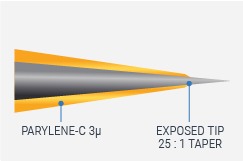 |
A - STANDARD TIP PROFILE Our standard tip profile features a sharp yet robust point that offers versatile performance and an effective balance between penetration and durability. |
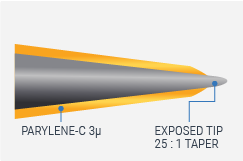 |
B - BLUNTED TIP PROFILE Our blunted electrodes are engineered to have a more rounded, bullet-shaped tip. For many applications the blunted tip can offer superior stimulation performance. |
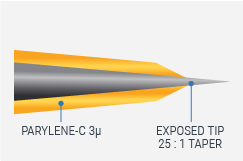 |
H - HEAT TREATED TAPERED TIP PROFILE Our heat-treated electrodes are intended for those investigators who must penetrate their probes through tough membranes, such as the dura mater of larger mammals. |
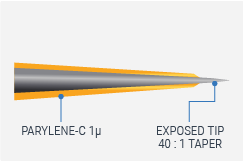 |
F - EXTRA FINE TIP PROFILE Our extra-fine tip profile features a significantly sharper taper as well as a thinner insulation layer. |
.png)
Standard Tip Profile
Our standard tip profile features a sharp yet robust point that offers versatile per...

Blunted Tip Profile
Our blunted electrodes are engineered to have a more rounded, bullet-shaped tip. For...

Heat Treated Tapered Tip Profile
Our heat-treated electrodes are intended for those investigators who must penetrate ...



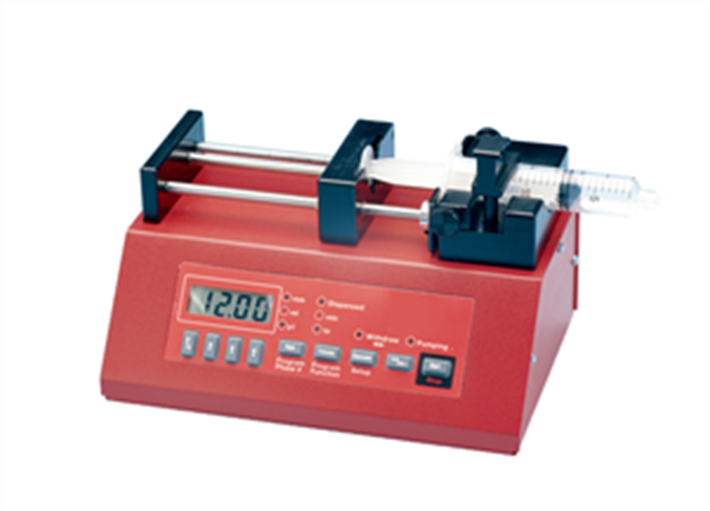
Request
Catalogue
Chat
Print